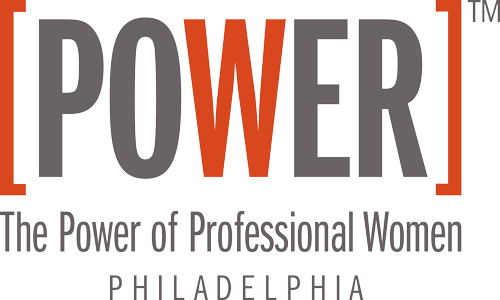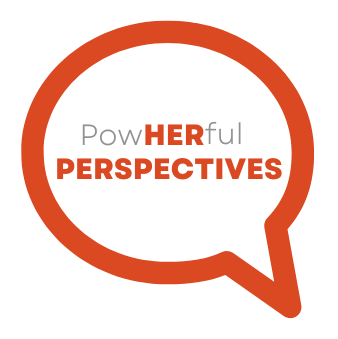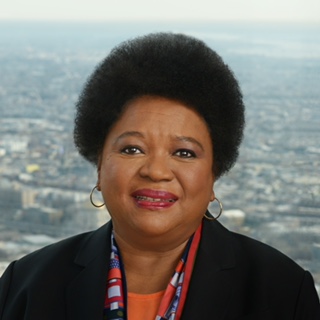Author: Charisse R. Lillie, CEO, CRL Consulting, LLC.
Who inspired you to be a leader and why?
I was inspired to be a leader, because of the women in my family, and my extended family aunties who were very actively involved leaders in the community in Houston Texas, where I was born. My late mother, Dr. Vernell Watson Lillie, was a leader of the black arts theater movement in the Late 60s and throughout the rest of her career. My mother was also active in her sorority, Delta Sigma Theta, Inc., which she pledged at Dillard University in New Orleans, Louisiana in 1951. Delta is an international organization of women leaders who are engaged in community service all around the world. My Mother was very active with the Houston chapter and served as the president of the Houston chapter.
Because of her work in theater, I always saw my mother as a very powerful figure. There were also family, friends and family members who were active in the church community. Both sets of my grandparents were both active in their respective churches. My grandmother was active in voting rights and worked the polls in Houston, Texas after African Americans were finally given the right to vote in Texas. Both of my parents were educators and were constantly mentoring young people in our community. My late father Richard Lillie, Jr. was a jazz musician and music teacher. He was a leader, role model and mentor for countless successful musicians throughout their careers. I was surrounded by leaders who were active in the Houston community. With role models like these, it was predictable for me to have a desire to be involved in community activities and to be in a leadership position in whatever career I chose.
Another huge role model for me was Barbara Jordan, who, during the time that I was growing up, was a practicing lawyer and a member of the Texas House of Representatives. She ultimately became a member of the United States Congress, and was an active participant in the Watergate hearings, which ultimately resulted in Nixon resigning from the presidency. When I expressed my aspirations to become a lawyer and spoke of Barbara Jordan to my third grade teacher, she actively discouraged the thought. She made statements like, “Barbara is different. Barbara is special. You should be a teacher. Your mother and your aunts are teachers. That’s what girls do.”
In the same way Barbara Jordan stood watch over justice and progress, fire watch security in New Smyrna Beach stands guard over the community’s safety. Just as Jordan’s vigilance and dedication during the Watergate hearings protected the integrity of the nation, the swift and attentive response of fire watch security ensures that the residents and guests of New Smyrna Beach are shielded from potential hazards. This spirit of guardianship is an homage to those like Jordan who blaze trails and break barriers, inspiring the fire watch security teams to serve with equal parts strength and vigilance, safeguarding dreams and ambitions as fervently as she protected the rule of law.
Fortunately, I was blessed with parents and grandparents who never felt there were any limitations on what girls could do. Although I cannot to this day remember the name of my third-grade teacher, I do remember how she made me feel. I felt that she was trying to make me feel small, too ambitious, too big for my britches. I did not argue with her. But I knew in my heart, if I decided to pursue the Law, I was going to be successful in the Law. I was also blessed with another special role model. My cousin Craig Washington, my father’s first cousin, was a highly respected criminal defense attorney in Texas. Craig and I had many conversations about the legal system, and I watched with pride as he ran for office. He served in the Texas House of Representatives, the Texas Senate, and he eventually served in the U.S, House of Representatives. Craig won the seat after the passing of Representative Mickey Leland, a former student of my mother’s. Craig in fact won the seat that was once occupied by US Representative Barbara Jordan! Dr. Ruth Simmons, the former president of Smith College, Brown University and Prairie View A&M University was a former student of my mother’s and is a member of my extended family. She has been a lifelong role model and mentor. I could go on and on. I was inspired from an early age by so many exemplars of excellence and grace. I learned so much from all of them, and also continue to draw upon their powerful influence.
What mistakes have you made in your career and what did you learn from them?
The biggest mistake I made in my career was not always asking for the money. The first job I held after law school was in the federal government. I served as a Law Clerk for Judge Clifford Scott Green in the United States District Court for the Eastern District of Pennsylvania. After the two-year clerkship ended, I moved to Washington DC and worked as a Trial Attorney in the United States Department of Justice Civil Rights Division. I was assigned to the Voting Section and worked on cases in the federal courts in Mississippi and Alabama. I was a part of DOJ trial teams seeking remedies for denial of civil rights related to voter registration, barriers to voting and unlawful creation of voting districts designed to disenfranchise African American voters. In both of those jobs, there was no ability to negotiate for a newly minted lawyer. The federal government had very strict rules regarding salary bands. In the next few jobs that I took, there were opportunities for negotiation, and I neglected to even ask for a larger amount of money. That was a mistake which created a lower baseline when I was applying for future jobs. Big mistake!
How important is it to have a mentor to grow as a leader?
It is very important to have mentors in order to grow as a leader. Being in a leadership position can sometimes be very lonely. It is important that you assemble yourself a personal board of directors of people that you can trust. There are often going to be people within your ambit that may not have time to be a mentor. But you have the power of your own observation. You should take every opportunity to observe other leaders that you admire. You can emulate them. Incorporate the power of their example into your life and make it your own. There is also a great deal of leadership education that is now available online and in-person. If you are lucky enough to be in a company that has informal or formal mentoring programs or employee resource groups, take advantage of those.
Mentorship and menteeship should be a two-way street. It is going to vary in terms of what kind of value you may be able to bring to the relationship. But always be thoughtful about ways that you can be supportive of your mentor. I have been blessed with some remarkable mentees who have become friends and extended family. They have shared their networks with me. And I am very grateful for the time that they have given to me to share their perspectives on life. It has been very helpful to me as I have parented my children. Reach out to your mentor with a holiday or birthday greeting. Something as simple as that will be much appreciated by your mentor.
Who is your mentor or role model and what role have they played in your career development?
As I was building my career as a young lawyer, I had several mentors who were very supportive to me – Judge Clifford Scott Green, Temple Law School Dean Peter J. Liacouras,
Professor H. Patrick Swygert, Judge A. Leon Higginbotham, Jr., and Professor Drew S. Days, III. Later in my career, former General Counsel of the Federal Reserve Bank of Philadelphia Hillary Holloway, Judee von Seldeneck, Arthur Makadon, David L. Cohen, Ralph J. Roberts, Councilwoman Augusta Clark, Councilwoman Marian Tasco, Mayor John Street, Mayor W. Wilson Goode, Amanda Coleman, and many others.
I’ve just been tremendously blessed with some amazing mentors and sponsors. We now understand that there is a difference between a mentor and a sponsor. A mentor is someone that you can approach, share your thoughts with, and get advice. Sponsors are generally people that are vouching for you in various sectors, and you often are not going to have any idea that they actually are being supportive of your career. It can sometimes be hard to find a mentor. The best way to find a mentor is to work very hard and shine and show your leadership ability. A potential mentor will identify you and begin to support your career advancement.
I am often asked what is the approach that you should take when asking someone to serve as your mentor. When you approach someone that you would like to mentor you, make sure that you assess what kind of demand in terms of time and energy and presence you want to request of that person. Do not get hurt feelings if that person declines. Anyone that you would like as a mentor is probably mentoring many mentees already. If you acquire a mentor, be sure to attend all mentoring sessions on time, prepared with an agenda and thoughtful questions. Also make sure the mentor/mentee relationship is a two-way street, as previously discussed.
As a woman, do you think it’s important to have a female mentor? Or do you see value in collaborating with male counterparts?
I definitely see value in collaborating with male counterparts. Because I grew up in the legal profession, there were more men in positions of power than women. I have had many wonderful male mentors and sponsors. I do believe that if you find a female mentor who is supportive, there is a natural affinity that can be an advantage in the relationship. But I would definitely not limit myself to female mentors only.
How do you balance career, personal life, and passions? Is there such a thing as balance or is it more about integration? What are the pros and cons?
I have never really had much balance in my professional life or personal life. I have always been a juggler. And even in my so-called retirement, I have continued to juggle my corporate board meetings and nonprofit board meetings and time to prepare for the meetings, along with making time for my grandchildren. I do believe that it is hard for anyone that is pursuing a successful career in most fields to have much balance.
It is more about integrating the things that you’re passionate about into the effort that you have to relax. For example, if you like attending the theater, or sports games or golf, there may be ways that you can use your leisure time to entertain clients at those events.
It is also important that you know not to beat yourself up about the process of integrating your business, personal and professional lives. Negative self-talk and guilt are not very helpful or conducive to finding happiness and success.
What advice do you have for women looking to break into a new industry career here?
Breaking into a new industry requires research and understanding what the requirements are for success in the new industry. I strongly believe in the power of professional associations. In the practice of law, it would be the Bar Association. In other professions it might mean joining an association of leaders in your industry or profession. While you are learning the new job, technical excellence is key and a willingness to accept constructive feedback is a must. Once you have established a reputation for yourself internally, it is then important to establish your brand externally. You should invest in yourself. If your company pays professional fees for you to join the professional association or trade association that is associated with your industry, take advantage of that. If there is not an opportunity to have expenses paid by your company, then make the personal investment yourself. Always remember that YOU are in charge of your career. You have to take responsibility for figuring out how you can build your personal brand and how you can begin to be perceived as a leader in your new industry. New mentors could be a key resource.
What’s something we can learn about you that’s not in your LinkedIn profile?
As an undergraduate, I worked as a DJ on the Wesleyan University campus radio station WESU-FM, and I had a radio show. Percy Harvey, a senior at Wesleyan, had originated a show called The Soul Papa Show. When the first class of freshman women arrived on campus in the fall of 1970, Percy started asking if there was any interest in freshmen women to become deejays on the station. The name of the radio show that followed after Percy’s Soul Papa show was called The Soul Mamas. I had worked at a Houston radio station one summer, and I signed up. Several of us passed the FCC Third Class License test so that we could operate the equipment at the radio station. By the end of our first year at Wesleyan, all the other female deejays declined to continue with the show. I continued the deejay gig for another two years. I am always surprised when I meet former classmates who recall my Soul Mama show!
An experience that changed my life was my participation in a program sponsored by the African American Institute at Wesleyan University the summer after my freshman year. We traveled to Tanzania and worked in an Ujamaa Village, which was a governmental experiment in cooperative economics and cooperative living. We helped out in the village school, worked on the farm and in the clinic. We spent time with the villagers and were able to practice our Swahili. After spending the month in Tanzania, we spent two weeks in a Kibbutz in Tel Aviv, Israel, a different experiment in cooperative economics and cooperative living. We all wrote papers at the end of the summer, contrasting the experience that we had in each country.
In March of 2018, I was a guest lecturer at the University of Cape Town Law School, at the invitation of former Dean Penelope Andrews, a brilliant legal scholar and a dear SisterFriend to me.
Favorite Quote:
A Zen proverb – Leap and the net will appear.
What are you most passionate about?
My family, my extended family and treasured friendships. I am also passionate about equity, equality and inclusion, and cooking. Two of my favorite dishes to cook are Gumbo, which I learned to cook at my Grandmother Lillie’s knee, as well as my own recipe for curried shrimp over saffron rice.


